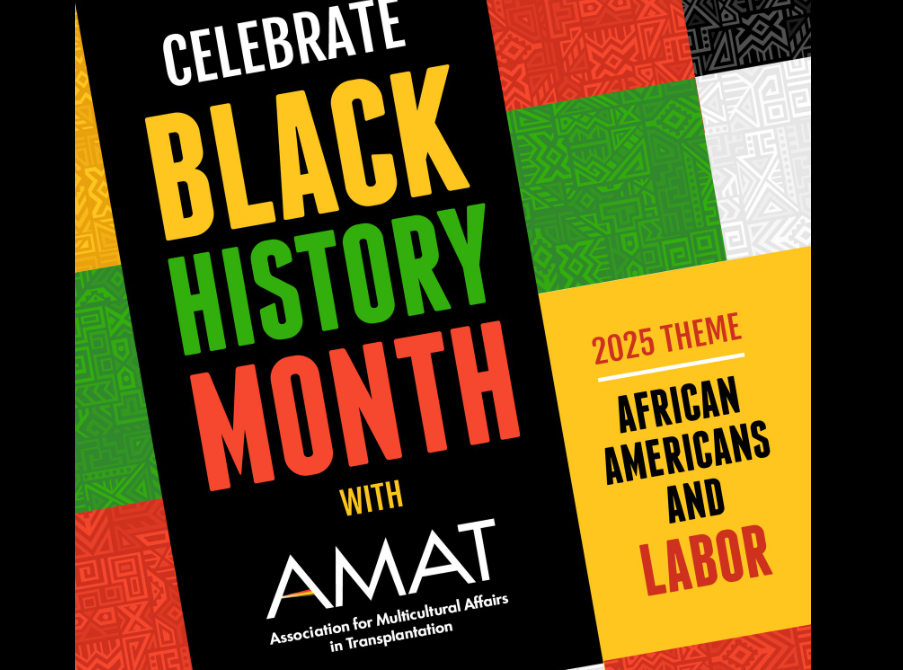The need for life-saving organ transplants is high in this nation’s Black communities. When compared to communities of other ethnicities and races, Blacks are disproportionately affected by the health burdens and diseases that lead to organ failure and result in the need for an organ transplant, especially kidney transplants.
As we celebrate Black History month it is important to pause and take note of the Black Americans who have been pioneers in the transplant field and why it important for al to consider the importance of organ donation.
Currently, 27% of all patients on the national waiting list for an organ transplant are Black. That is over 28,000 Black patients who are at risk of death if the needed organ is not donated and transplanted in time. The racial and ethnic differences in transplant need are especially noticeable in relation to kidney disease. In the US, over 800,000 people suffer from end-stage kidney disease with Black individuals nearly four times more likely to develop kidney disease than Whites.
It is disparities such as this that led several Black Americans into the field of medicine who became leaders in the world of donation and transplant, and increasing fairness for Black Americans. Among them include:
- Vivien Thomas (1910 – 1985), though he lacked a formal medical degree, served at John Hopkins as supervisor of the surgical laboratories and there went on to train generations of surgeons, including many transplant surgeons.
- Samuel Kountz (1930 – 1981) was a surgical resident in training at Stanford University when he made history by performing the first successful kidney transplant between non-identical twins. Prior to that, transplants had only been performed between identical twins because they were almost perfect biological matches.
- Clive O. Callender (1936), a transplant surgeon and medical professor at Howard University, pioneered minority transplantation and developed the first minority-led dialysis and transplant center in the US.
- Velma Scantlebury-White (1955), a Bahamian-American, became the first Black female transplant surgeon in the United States in 1989 and is currently a Professor of Surgery at Texas Christian University.
Organ donation is a community act of kindness built on trust and so the allocation of donated organs must be fair. When someone dies and becomes a donor, their organs are matched to patients on the national transplant wait list based on such factors as blood type, body size, biological markers, how sick they are, distance to where the donor died, and time on the waiting list. Using these factors results in successful transplants from donors of different races and ethnicities.
However, because compatible blood types and biological markers – important factors in matching –tend to be found more commonly among members of the same race or ethnicity it is very important for there to be a diverse donor population. This can lead to better matches for transplant recipients and improved long-term survival if donor and recipient are similar in genetic background.
While Black patients generously made up almost 15% of donors who donated organs after death in 2024, this still leaves a racial imbalance in the pool of donors compared to the many more that need a transplant. This imbalance can extend the wait times for some Black patients in need of a transplant, many of whom already face systemic barriers in access to healthcare.
Cultural myths and misconceptions about organ donation can deter individuals of any racial or ethnic background from considering donation but these fallacies all harm patients in need.
Here are some facts for all of us to keep in mind when considering donation:
- Doctors and other medical professionals will always focus on providing the best possible care to a patient regardless of donor registration.
- Everyone can be considered for donation after they die, even those of advanced age or who had previous health issues.
- The national waitlist system shares organs through a computerized system designed for fairness. Being wealthy or famous does not move a patient up the wait list.
- The number of Black patients receiving a transplant from a deceased donor has increased twelve years in a row, doubling since 2013.
The act of donation itself fosters a sense of collective responsibility and reinforces the idea that all of us are connected to each other. Simply registering as an organ donor is a sign that we understand none of us can really “go it alone” and that we must on rely on one another. Register now at RegisterMe.org.

